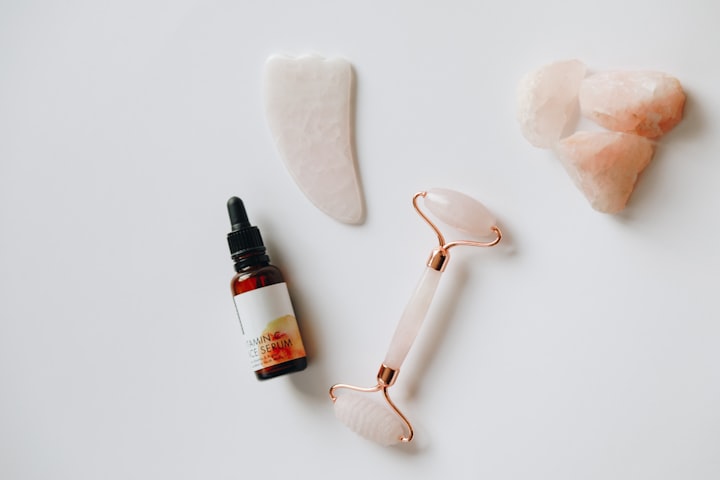The Self-Care Prescription
3 drops care, and 3 drops caution

Self-care is all the rage.
It’s trending like most angry passions do, except the goal with this one is inner peace. So advertisements bombard you with lotions and soaps, in the hopes that the many product options won’t overwhelm you, but instead, soothe you with their soft, pastel color palettes.
Still, maybe bath bombs don’t resonate with you, so you check Google to look for alternative options. You hit the enter button and there it is, the endless feed of tricks and remedies you needed. The ultimate guides. The most effective practices. Just find ways to relax, it reads (are you relaxed yet?) Just socialize and see some friends (is Covid over yet?).
And suddenly, self-care is everywhere. In your social media feed, in conversations, books, and even professional tips. It’s everywhere, but is it in the place it needs to be? Because actually, tending to the self is a very personalized trend.
So let’s revisit the definition of self-care, according to the World Health Organization (WHO):
“The ability of individuals, families and communities to promote health, prevent disease, maintain health, and to cope with illness and disability with or without the support of a healthcare provider”.
The overall message is: take care of yourself to promote your health and prevent illness. Simple. Lead a healthy life so that you are less likely to need healthcare support, but also, reach out for support if you need it.
So how did cosmetic products and expensive retreats make the cut?
Drop 1: Maintain Your Overall Health in Check
It is the individual person who acts (or does not act) to preserve health or respond to symptoms — WHO
When we think about overall health, we think about everything from nutrition and hydration to hygiene, exercise, a healthy environment, appropriate medication, and even socioeconomic factors and living conditions.
In sum, self-care is an individual actively caring about their overall health, and being autonomous and responsible for their lifestyle. But it’s not just about the individual, it’s also about the community, and empowering it to become more accountable for its overall health. According to the global self-care federation,
Short-term investments in self-care lead to demonstrable long-term savings for governments and healthcare industries across the world. Self-care eases the workload of strained healthcare systems by enabling them to allocate resources more efficiently and effectively
Things to ask yourself:
- Am I making the conscious decision to take care of my health?
- What knowledge is available to me about how to be healthy? Am I using it correctly? Is it credible information?
- Am I able to reach out to someone if I need help with any aspect of my health? (mental, emotional, physical, social, etc)
Drop 2: Get to Know Yourself
“Self-care is actually the process in which you get to know yourself” — Adriene Mishler
Self-care won’t look the same every day. It can, but it doesn't have to. In the same way that we don’t feel the same way every day, what we need is also going to change. So start there, with that question: what do I need today?
Above everything else, the most important thing is that you are taking stock. The simple act of checking-in is connecting to yourself. And really, the love in self-love is just that: connecting.
So more than a fixed routine, find flexibility in the form. Self-care is multifaceted and multidimensional. The routine can even be the time you have set aside to tend to yourself each day. But give yourself some space for change and listen to your intuition. The body knows what the body needs.
Things to ask yourself:
- Have I checked in with myself today?
- How does today feel different from yesterday?
- What can I do to connect to myself today?
Drop 3: Take it Easy Lemon Squeezy
More often than not, we hold high expectations for ourselves. This includes anything from how we look, to how we move, how we speak, what we know, who we know, and the list goes on.
It’s great to set goals and challenges for ourselves, so long as we meet them with some compassion. Essentially, we should be kind and tolerant in our moments of fragility and struggle. Pushing yourself doesn’t have to mean pushing yourself to the ground. The point is to move forward, not to stumble downward. Also, if you're not moving forward or improving all the time, this doesn’t make you a failure, it makes you human. And you aren’t super-human. You’re just plain human.
Things to ask yourself:
- What does my internal monologue sound like? Would I talk to someone I respect in the same way?
- How am I moving my body? What am I even feeling in my body today?
- Can I be more forgiving? Am I holding realistic expectations for myself?
Caution 1: Spend, Spend, Spend, Spend!
As many articles have already pointed out, capitalism has found its way into the self-care narrative in quite an exploitative way. It is devious in that it prioritizes the health benefits of tending to the self, but only by way of the products they are selling you. So instead of “take a moment to relax from your busy schedule”, they will incite you to “take a moment to relax from your busy schedule with this amazing flower-scented, Himalayan body scrub! Plus, it’s on sale!”
And since we consume with our senses, namely our eyes, we begin to create illustrations in our mind of what self-care looks like. A purple, jasmine-infused bubble bath. A detox face mask. The ultimate tension release massage. A getaway wellness pack. A charming glass of wine.
Do we need all these things? No. Do they distract us from what we actually need? Probably. Although these activities may all be soothing, beautiful, and have relaxing effects, they assume that we cannot accomplish the same results without them. The danger in this is associating self-care with something that is only done when monetarily available, instead of activities you can do more consistently, and free-of-charge. As Casira Copes so eloquently puts it:
“Nine times out of ten, I can take great care of myself without bringing my credit card into the equation.”
Things to ask yourself:
- If I depend on this product (or others I deem necessary) for my self-care practice, how long can I go on until I am broke?
- Out of all the things I can buy for myself, why is this the best investment?
- Can I get the same effect without buying this product?
Caution 2: Champagne for the Ego
Start your day with affirmations, they say. Begin by finding a comfortable spot in front of the mirror, then, tell yourself you are amazing, beautiful, wonderful, unique, and brilliant. Your ego will love it. Until you face the mirror that is other people and then the narrative goes back to square one.
The point is not to feed the ego. The point is to look at yourself and be comfortable. The point is to be accountable for your actions and your inner monologue and see what isn’t working, and what needs to change. This doesn’t mean going into self-destruction mode, screaming “you have failed again!” It just means considering “where and how can I show up better, for others and myself?”
Contrastingly, telling yourself you are flawless, and that you don’t care what other people think doesn’t set you up for conscious reflection. It sets you up for comfortable accommodation. It sets you up for selfishness. Take the time for yourself, that is not selfish, but always consider your own personal room for growth. So start the day with affirmations by all means, but make sure you are the one choosing them. Make sure they are specific to your needs, and how you want to feel.
Things to ask yourself:
- What can I be accountable for? Where can I be more present?
- Is the thing I’m feeling insecure about something I can work on?
- Can I ask someone to help me process my emotions?
Caution 3: The Cop Out
Self-care is conscious and active. It is not an excuse to be passively unconscious. That means that postponing what you don’t want to do, or even, what you’re afraid to do, is not necessarily caring for yourself in the long run. Rejecting your responsibilities and not honoring your commitments will probably jeopardize your relationships and your projects.
With this in mind, setting boundaries is important. Managing your energy and your resources is vital to maintaining your health. So saying “no” is necessary at times. But so are chores, your job, your relationships, and your civic duties. There is no need to reject them, just try to see them more mindfully, and give them meaning.
Things to ask yourself:
- What do I need to do that is difficult/I don’t want to do/am afraid of?
- Can I get anyone to help me with those things?
- Will postponing or canceling make me feel better tomorrow?
Final Thoughts
Self-care is about agency and taking your health into your own hands. It’s about caring for yourself with consistency, curiosity, and compassion. It’s not a treat or an occasional luxury for when you’re burned out. According to the UK Department of Health Steering Group, it is a “lifelong habit and culture.”
Nurture yourself in the little things, and also enjoy the bath bomb, and a refreshing face mask. But don’t conflate those products with the idea behind them. Time spent with yourself. Cultivate that relationship to have healthier relationships with others. Connections with others are crucial to well-being. It all comes full circle.
So have a break and have that Kit Kat. Get a massage and drink that glass of wine. But don’t forget what it’s all about.
About the Creator
Maria Garcia
Connecting through storytelling
Writer // Psychologist // Teacher // Singer






Comments
There are no comments for this story
Be the first to respond and start the conversation.